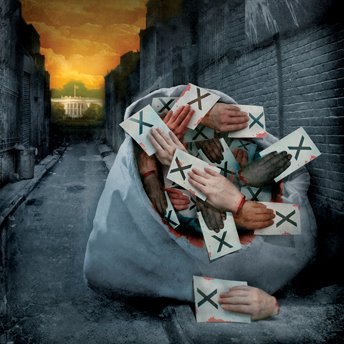New RFK Jr. article will explore if 2006 election can be hacked


RAW STORYPublished: Thursday September 21, 2006
In the upcoming issue of Rolling Stone, environmental lawyer Robert F. Kennedy Jr., along with award-winning writer Dick Russell, deepens his investigation into America's electoral process, according to a press release received by RAW STORY.
"Following the debacle of the 2000 presidential election, touch-screen voting machines promised to make voting as easy and reliable as withdrawing cash from an ATM," the press release states. "In 2002, privately owned Diebold, the world’s third-largest seller of ATMs, was awarded a contract to install 19,000 voting machines across the state of Georgia even though its bid was the highest among nine competing vendors, and it had only recently completed its acquisition of Global Election Systems (a voting-machine firm that owned the technology Diebold was promising to sell Georgia)."
"But as November's high-stakes midterm elections approach, electronic voting machines are making things worse instead of better," according to the press release. "Studies have demonstrated that hackers can easily rig the technology to fix an election – and across the country this year, faulty equipment and lax security have repeatedly undermined election primaries."
In the article, Kennedy interviews former Diebold consultant, Chris Hood, who "reveals to what extent our right to vote is at risk."
Excerpts from the article, which will be online tomorrow at Rollingstone.com:
#
In late July, to speed deployment of the new machines, Cox quietly signed an agreement with Diebold that effectively privatized Georgia’s entire electoral system. The company was authorized to put together ballots, program machines and train poll workers across the state – all without any official supervision. “We ran the election,” says Hood. “We had 356 people that Diebold brought into the state. Diebold opened and closed the polls and tabulated the votes. Diebold convinced Cox that it would be best if the company ran everything due to the time constraints, and in the interest of a trouble-free election, she let us do it.”
Then, one muggy day in mid-August, Hood was surprised to see the president of Diebold’s election unit, Bob Urosevich, arrive in Georgia from his headquarters in Texas. With the primaries looming, Urosevich was personally distributing a “patch,” a little piece of software designed to correct glitches in the computer program. “We were told that it was intended to fix the clock in the system, which it didn’t do,” Hood says. “The curious thing is the very swift, covert way this was done.”
Georgia law mandates that any change made in voting machines be certified by the state. But thanks to Cox’s agreement with Diebold, the company was essentially allowed to certify itself. “It was an unauthorized patch, and they were trying to keep it secret from the state,” Hood told me. “We were told not to talk to county personnel about it. I received instructions directly from Urosevich. It was very unusual that a president of the company would give an order like that and be involved at that level.”
According to Hood, Diebold employees altered software in some 5,000 machines in DeKalb and Fulton counties – the state’s largest Democratic strongholds. To avoid detection, Hood and others on his team entered warehouses early in the morning. “We went in at 7:30 a.m. and were out by 11,” Hood says. “There was a universal key to unlock the machines, and it’s easy to get access. The machines in the warehouses were unlocked. We had control of everything. The state gave us the keys to the castle, so to speak, and they stayed out of our way.” Hood personally patched fifty-six machines and witnessed the patch being applied to more than 1,200 others.
#
BRAD BLOG has more on the new RFK Jr. article
Rolling Stone's prior article by Robert F. Kennedy Jr. "Was the 2004 Election Stolen?" can be read at this link.




0 Comments:
Post a Comment
<< Home